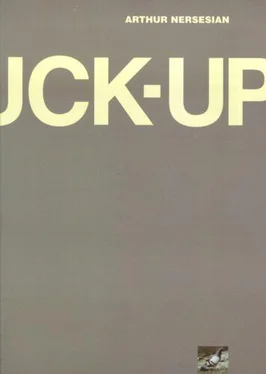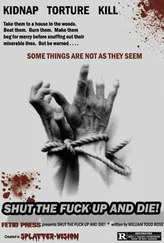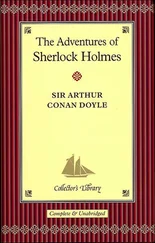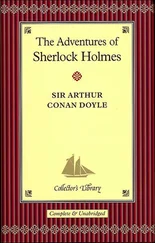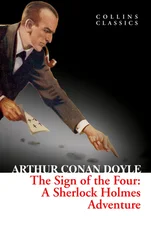Eventually as they passed I would rise, distancing them from the dreaded me. Finally as one old fellow was leaving I was able to catch the front door before it slammed shut. The doorbell had to be broken. I banged on Sarah’s door for about five minutes. And then I just listened silently, not a creature was stirring, not even a cockroach.
Back on the front stoop, I thought about Sarah’s phone ringing. Where the hell was the answering machine? Finally I went up to look at her mailbox. Her name was there, but tagged next to it was another name. She probably had adopted a new boyfriend. Quickly it neared five o’clock. People filled the streets streaming homeward. As Sarah’s neighbors dashed back into the apartment, I noticed some of them mumbling between themselves. I could almost hear them, “Yeah, he’s been hanging out here for hours.”
As the street lights blinked on, I sat in front of Sarah’s door and recalled how many times I had thoughtlessly strolled through this hallway on the way up to Sarah’s apartment. Finally, despite or perhaps because of the cold, I started drifting to sleep.
Suddenly someone said, “Time to get up.” A cop was standing over me with some lady behind him.
“No, officer.” I rose to my feet. “I’m waiting for someone who lives here.”
“Come on,” the officer started swinging his night stick. “Get out.”
“I’m waiting for Sarah Oleski in apartment five.”
“She’s no longer here,” the lady standing behind the officer informed him.
“Where is she?”
“Hey, I’m not playing with you anymore,” the officer said, and then he whacked me on the forearm; years before the Tompkins Square tumult.
“I just want to know where Sarah is. I was her boyfriend. I’m concerned.” I was backing out of the building, cradling the forearm.
“She went off to school,” the lady told the cop. School, she was going to graduate school. It all came back to me. And out in the cold I started walking. It was night now, and I had no idea what to do. I walked by the Zeus Theater. From across the street I watched guys enter and leave. Soon it was midnight. I started back to the Men’s Shelter on Third Street. The big door was closed and locked. I knocked until someone answered. Quietly I was led into a room, where some guy asked some preliminary questions. I was required to take a shower. Then I put my clothes back on, as crappy as they were. They were all I had. I was assigned a bed, but I didn’t sleep at all that night.
The next morning, I pissed and joined the line in the hall. When Ernie started walking up the stairs banging his ladle against the pot, I lowered my head so as not to be seen. My pride wasn’t completely dead yet. I gulped breakfast down quickly and got a second helping. I then shoved my orange in my pocket and before Ernie could spot me I was out the door. I wasn’t sure where I was going to spend the upcoming night, but felt there was no way I could return to that shelter. I spent the day walking around places I had known when I was alive. Even if I saw Glenn or someone, I wondered whether I would have the guts to approach them. That night I went over to the Path Train stop on Ninth Street and without paying I rode the train from terminus to terminus, over and over.
Back in the early eighties, the cash machine enclosures were not nearly as ubiquitous, so subways were the predominant sleeping sites. The Path was much cleaner than the New York subway, but it was also better policed. Several times I was thrown off the train. The next afternoon I was accompanied off the train at the Christopher Street station. The cop who escorted me had thrown me off the train earlier. He told me that if he found me sleeping in his train again, he would walk me into the tunnel and shoot me, and that in six months’ time the rats would have completely devoured my body. I’m not sure if he was serious, but I admired his rich use of detail. I walked down Christopher to the river, where I envisioned old bodies floating on the surface. Manhattan on the Ganges. Some guy came up to me, and mumbled, “The Pier is closed at sunset.”
I reentered the labyrinth of streets and started getting very hungry. Passing an outdoor Korean fruit stand, I carefully snuck up to the very edge and slowly put my hand on a cantaloupe. When I removed it, others came rolling down, and the cashier guy ran out at me with a big machete.
“I’m fucking hungry, asshole!”
“Fug yer!”
“My great great grandfather fought in the Civil War!” I yelled back before I limped away. He probably didn’t even know about that war. Soon I spotted another street person holding shopping bags, an old ugly guy. With nothing else to do, I followed him. When he got to the corner, I watched him going through a garbage can. He ferreted out some kind of discarded food product, which he carefully scrutinized and then he only ate several bites. Fumbling through the garbage, he pulled out a couple beer cans, which he emptied and shoved in his shopping bag.
“How do you know you’re not going to get sick eating that shit?” I stepped up and asked him. He only looked at me and then walked away; some were idiots, some were psychos, and some were just luckless.
Imposed distinctions started fading. Periodically I had to stand in a doorway or over a subway grating in order to thaw out a little. After that, I had about a fifteen minute duration before the cold started hurting again. Inspired by other foragers, I found a bag. I went from trash pile to trash pile rummaging for cans; I did this mainly because it was something to do. Only a couple of times did I actually cash in the cans for the nickel deposits. While working the can circuit down Greenwich Avenue, I looked in the window of the bookstore at Greenwich and Sixth Avenue and spotted the new issue of the Harrington. Leaving my bags outside. I went over to the magazine and flipped through the pages to my poem.
“Shoo! Out!” Looking up, I saw the cashier, a well-dressed guy with long wavy hair and wire-framed glasses.
“I wrote this poem. Want me to sign it?”
“No thanks,” he replied, plucking the issue from out of my hand and escorting me out the door. It was then, while picking up my bag of cans, that I remembered. Owensfield was rich and he respected my talents. It didn’t occur to me that he might feel screwed by the theater deal. I took the cans to a deli. The guy didn’t want to cash them, but I started crying so he just handed me a quarter. I found a pay phone outside and got the number of the Harrington offices. Putting my quarter in the slot, I dialled for salvation. The receptionist answered.
“This is one of the contributors to the current issue,” I said professionally “I’d like to speak to Mister Owensfield.”
“I’m sorry Mister Owensfield just left town.”
“Left town!”
“I’m afraid so. He’s on his first vacation in two years.”
“When will he be back?”
“In about a month.”
“A month!”
“The next issue doesn’t come out for another three months. Rest assured, there’s plenty of time for any submissions.”
“No there isn’t!” I groaned.
“Perhaps I can help you?”
“Listen,” I said desperately, “I’m nothing, I’m a fucking street bum. I’m eating shit out of the garbage and I crap in doorways…” The phone went click. I had made a faulty approach.
Wandering, I begged, I looked for little bites here and there, for possible places to grab some shut-eye, for discarded garments that might come in handy. I addressed remote questions I never imagined I would have to consider: How badly does food have to be decomposed before it’s no longer edible? How cold should I be before I need warmth? Shame diminished; I was becoming accustomed to expelling waste in public. Pain became a passive verb: I no longer hurt, I was just in pain. I hadn’t really experienced hunger before, now it was a constant.
Читать дальше
